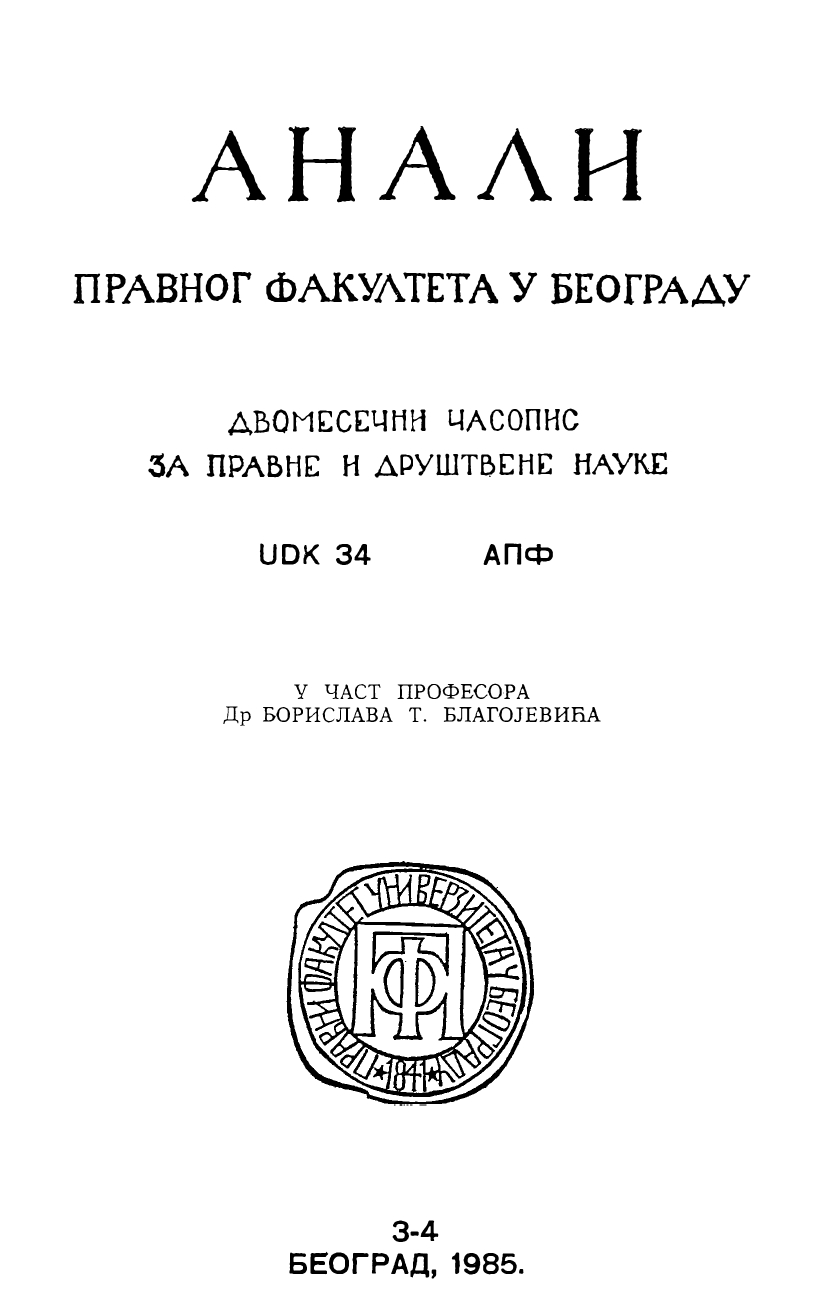ПРОМЕНА ПРАВНОГ ОДРЕЂИВАЊА ПОРОДИЧНОГ ИНТЕГРИТЕТА
THE CHANGES OF LEGAL DETERMINATION OF FAMILY INTEGRITY
Author(s): Marina Janjić-KomarSubject(s): Law, Constitution, Jurisprudence
Published by: Правни факултет Универзитета у Београду
Summary/Abstract: Legislating in the sphere of family relations is based on the model of complete, marriage-type and nuclear family. The development of legal regulation, however, points out that the prerequisites of this model suffer changes in social relations, namely in evaluating these relations also at the level of legal norm. The marriage represents a free community where the emphasis is placed on personal relations and the realisation of individual happiness. Overtly individualistic conception of these relations influences also the changes of social significance of marriage. The freedom of entering into marriage is extended also to the freedom of divorcing which has its bearing on determination of the divorce causes. The center of gravity of legal regulation is thus shifted from ensuring the permanency of mariage to the consequences of divorce. Since the marriage less and less ensures social security and position of partners, it begins to loose in significance of its from too. Parental relationship is not any more a direct extension of marital relationship. Out-of-wedlock children are made equal to the children born in wedlock as far as their rights and duties are concerned. By liberalizing the divorce their position is also factually made equal. The structure and contents of the parental relationship are changing too, since the conflict of interests in these relationships assume particular importance for the society, so that there is more intensive legal intervention in this field. The emphasis is also placed to the significance of the duties of the parents, while rights are being transformed into the rights of jurisdiction — namely, into social functions. The child is more and more individualized as a subject in the parental relationship. Opting for a nuclear family diminishes the importance of the blood relationship. The relations towards the kin are reduced to specific property relations. Since the liberalisation of divorce causes necessarily the decomposing of the family nucleus, the foster parent relationship assumes in significance, which applies also to the in-laws kinship, namely the relationship between the stepfather and stepmother towards the stepson and stepdaughter. The community of life between a grown-up person and a child becomes a fact which is ensured in a primary way. The very notion of family is subject to changes. Regular functioning of the family is ensured by an ever greater legal intervention which is more and more concentrated on the problems of institutional organisation.
Journal: Анали Правног факултета у Београду
- Issue Year: 33/1985
- Issue No: 3-4
- Page Range: 390-395
- Page Count: 6
- Language: Serbian

